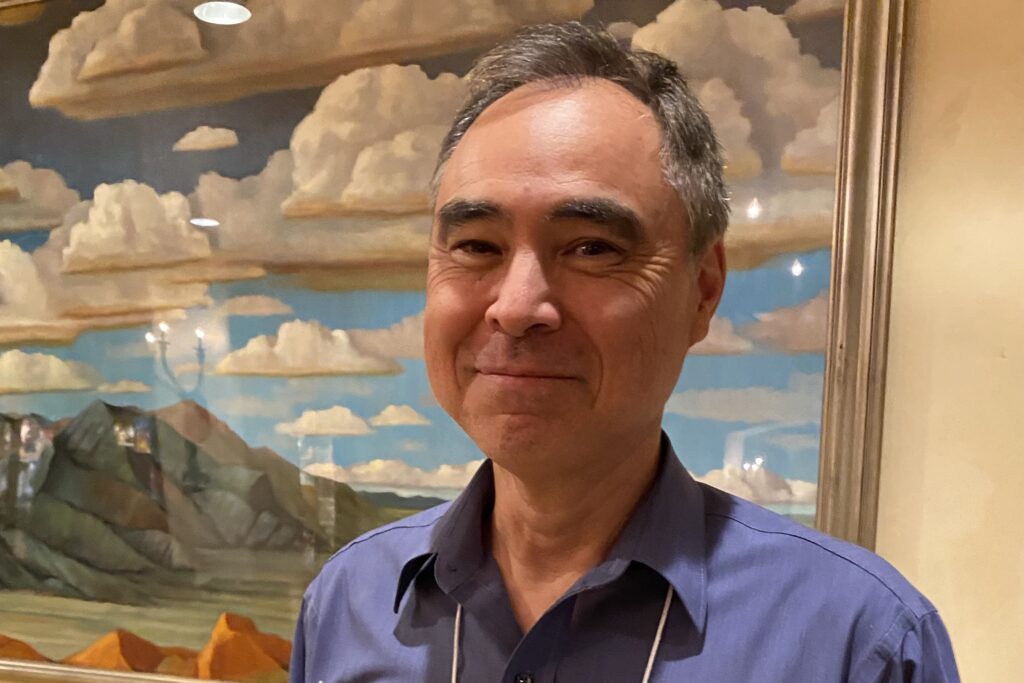The long-serving executive director of the First Americans Land-Grant Consortium fills a position vacated by Carrie Billy.
By Melanie Lenart

John Phillips will take the helm at the American Indian Higher Education Commission as interim president and CEO. Phillips has been with AIHEC since 2000, most recently serving as its Land Grant director as well as executive director of FALCON, the First Americans Land-Grant Consortium. He takes on the new executive role even as he continues to manage the 2023 FALCON conference, scheduled for Oct. 13-15 in Denver.
Phillips replaces Carrie Billy, a lawyer by training and a citizen of the Navajo Nation, who joined AIHEC 24 years ago and served as president and CEO since 2008.
Formed in 1973 and guided by a board composed of tribal college presidents, AIHEC serves as the collective voice of nation’s more than three dozen tribally controlled colleges and universities. The value of this collaborative approach was demonstrated in 1976 when AIHEC wrote and successful pushed for passage of federal legislation authorizing annual appropriations to the colleges.
Even before joining AIHEC, Billy’s work in the office of U.S. Senator Jeff Bingaman (D-New Mexico) helped secure the passage in 1994 of legislation designating tribal colleges as Land-Grant institutions. This allowed the tribal colleges, known as “1994s” in Land-Grant parlance, to secure funding for community projects and agricultural and natural resources education and research from the USDA.
During his own 23 years with AIHEC, Phillips served as the tribal colleges’ liaison with the U.S. Department of Agriculture, where he was responsible for representing the interests of the 1994 Land-Grant Institutions throughout USDA and the public. He also served as executive director of FALCON, a non-profit association of TCU Land-Grant administrators, directors, faculty, and staff.
In this role, Phillips guided FALCON through a challenging period. In 2019, the Trump administration relocated NIFA—the funding source for many tribal colleges—out of Washington, D.C. to Kansas City, Missouri. The agency lost more than three-quarters of its staff in the move. As FALCON director, Phillips assured tribal college professionals nervous about the stability of funding for tribal communities and agricultural and natural resources education that NIFA was promising “that the trains will run on time.”
Phillips understood the challenges of managing Land-Grant programs based on his own experience in the 1990s as director of a new Cooperative Extension office at Cheyenne River Community College (which later became Si Tanka University) in South Dakota. There, he developed programs in community gardening, youth development, diet and nutrition, and economic development while also being involved in research and education.
In the late 1980s, he used his bachelor’s degree in computer science from California State University-Sacramento to work for IBM, but he left the San Francisco post after four years for a Peace Corps stint in Swaziland, a small country in southern Africa. Upon his return, he finished a master’s of science degree in Environmental Systems from California’s Humboldt State University. One of his peers, a Lakota man, encouraged him to bring his interest in community work into Indian Country and soon after he began working on the Cheyenne River Reservation.
Phillips, who has Korean and Welsh heritage, earned a Ph.D. in Rural Sociology from the University of Missouri-Columbia in 2003 while already working for AIHEC. In 2017, he was into the NIFA Hall of Fame.
Melanie Lenart is a contributing editor for Native Science Report. Story published November 10, 20023
• • •
Enjoyed this story? Enter your email to receive notifications.
